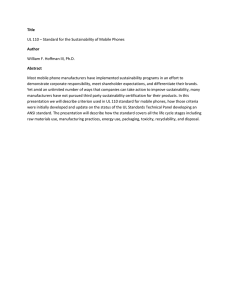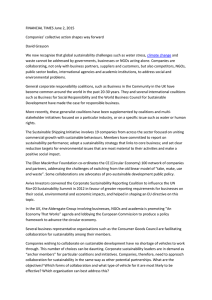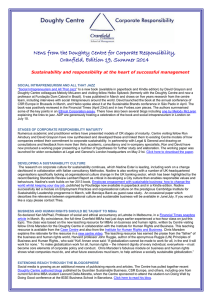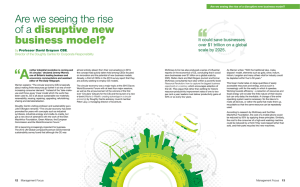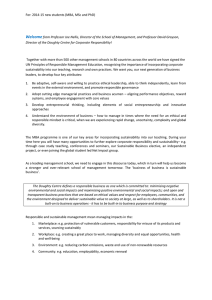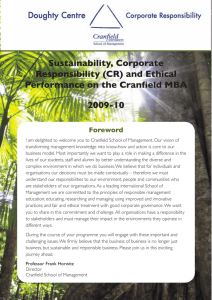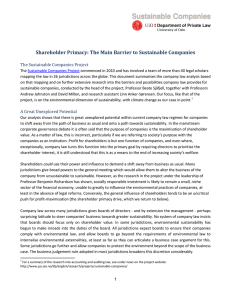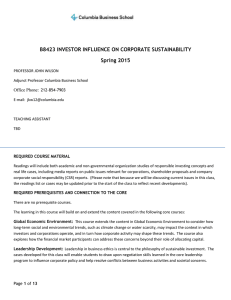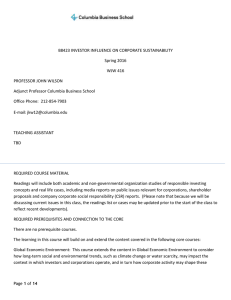HOW CAN BUSINESS COMBINE PROFIT AND PURPOSE David Grayson
advertisement
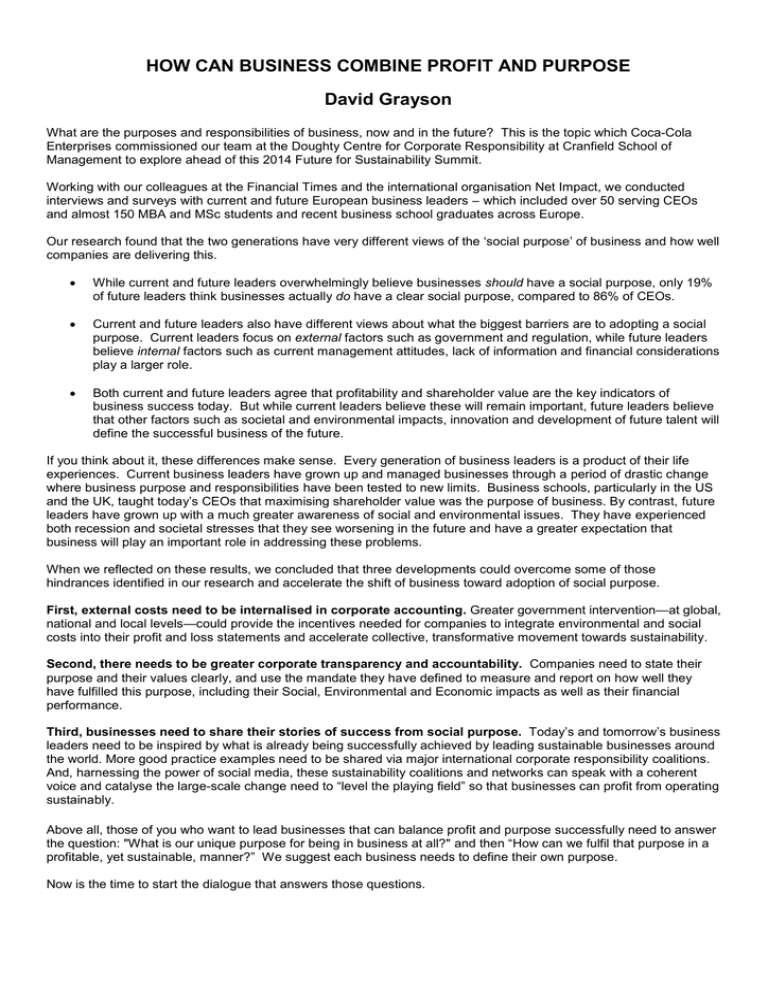
HOW CAN BUSINESS COMBINE PROFIT AND PURPOSE David Grayson What are the purposes and responsibilities of business, now and in the future? This is the topic which Coca-Cola Enterprises commissioned our team at the Doughty Centre for Corporate Responsibility at Cranfield School of Management to explore ahead of this 2014 Future for Sustainability Summit. Working with our colleagues at the Financial Times and the international organisation Net Impact, we conducted interviews and surveys with current and future European business leaders – which included over 50 serving CEOs and almost 150 MBA and MSc students and recent business school graduates across Europe. Our research found that the two generations have very different views of the ‘social purpose’ of business and how well companies are delivering this. While current and future leaders overwhelmingly believe businesses should have a social purpose, only 19% of future leaders think businesses actually do have a clear social purpose, compared to 86% of CEOs. Current and future leaders also have different views about what the biggest barriers are to adopting a social purpose. Current leaders focus on external factors such as government and regulation, while future leaders believe internal factors such as current management attitudes, lack of information and financial considerations play a larger role. Both current and future leaders agree that profitability and shareholder value are the key indicators of business success today. But while current leaders believe these will remain important, future leaders believe that other factors such as societal and environmental impacts, innovation and development of future talent will define the successful business of the future. If you think about it, these differences make sense. Every generation of business leaders is a product of their life experiences. Current business leaders have grown up and managed businesses through a period of drastic change where business purpose and responsibilities have been tested to new limits. Business schools, particularly in the US and the UK, taught today’s CEOs that maximising shareholder value was the purpose of business. By contrast, future leaders have grown up with a much greater awareness of social and environmental issues. They have experienced both recession and societal stresses that they see worsening in the future and have a greater expectation that business will play an important role in addressing these problems. When we reflected on these results, we concluded that three developments could overcome some of those hindrances identified in our research and accelerate the shift of business toward adoption of social purpose. First, external costs need to be internalised in corporate accounting. Greater government intervention—at global, national and local levels—could provide the incentives needed for companies to integrate environmental and social costs into their profit and loss statements and accelerate collective, transformative movement towards sustainability. Second, there needs to be greater corporate transparency and accountability. Companies need to state their purpose and their values clearly, and use the mandate they have defined to measure and report on how well they have fulfilled this purpose, including their Social, Environmental and Economic impacts as well as their financial performance. Third, businesses need to share their stories of success from social purpose. Today’s and tomorrow’s business leaders need to be inspired by what is already being successfully achieved by leading sustainable businesses around the world. More good practice examples need to be shared via major international corporate responsibility coalitions. And, harnessing the power of social media, these sustainability coalitions and networks can speak with a coherent voice and catalyse the large-scale change need to “level the playing field” so that businesses can profit from operating sustainably. Above all, those of you who want to lead businesses that can balance profit and purpose successfully need to answer the question: "What is our unique purpose for being in business at all?" and then “How can we fulfil that purpose in a profitable, yet sustainable, manner?” We suggest each business needs to define their own purpose. Now is the time to start the dialogue that answers those questions.
